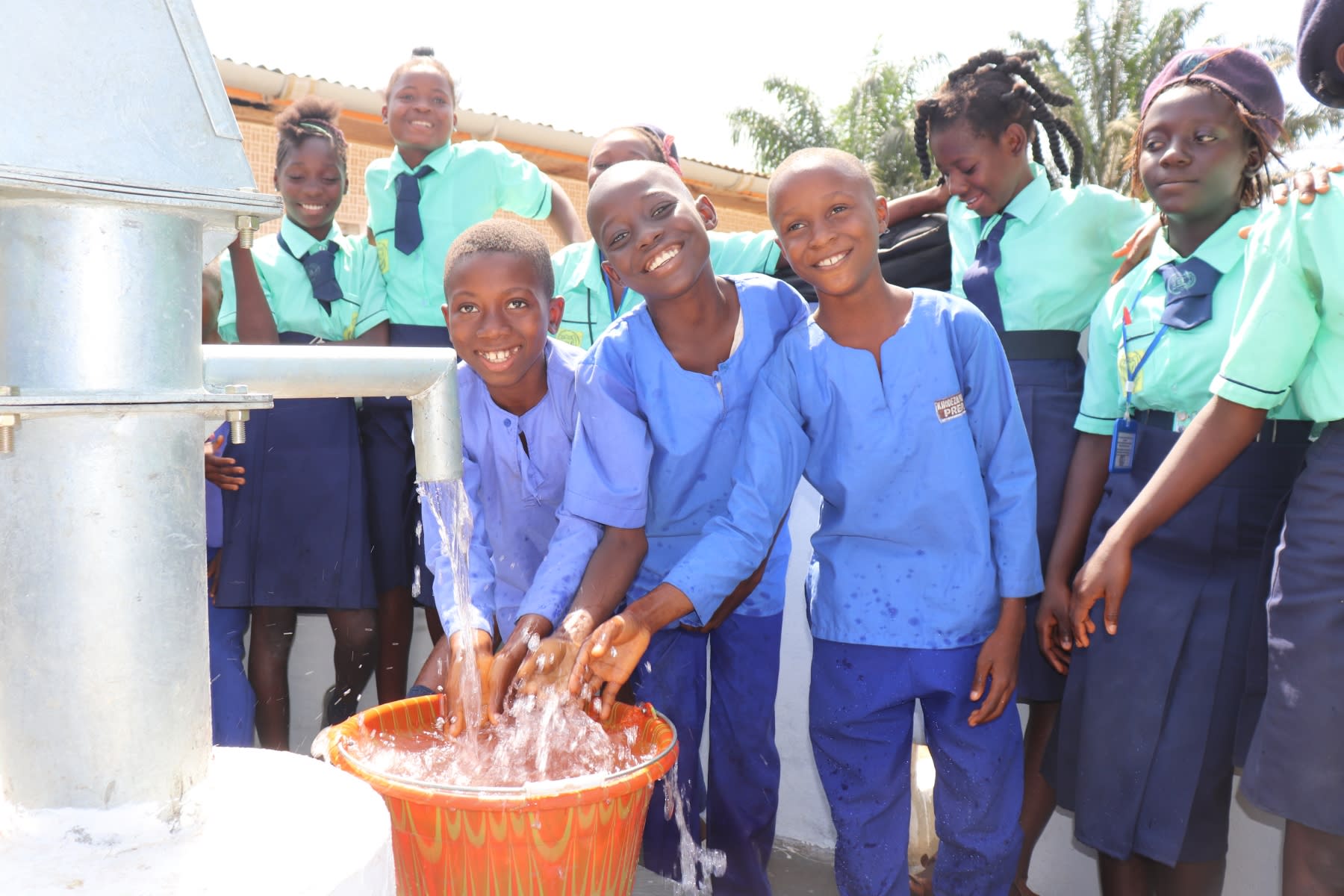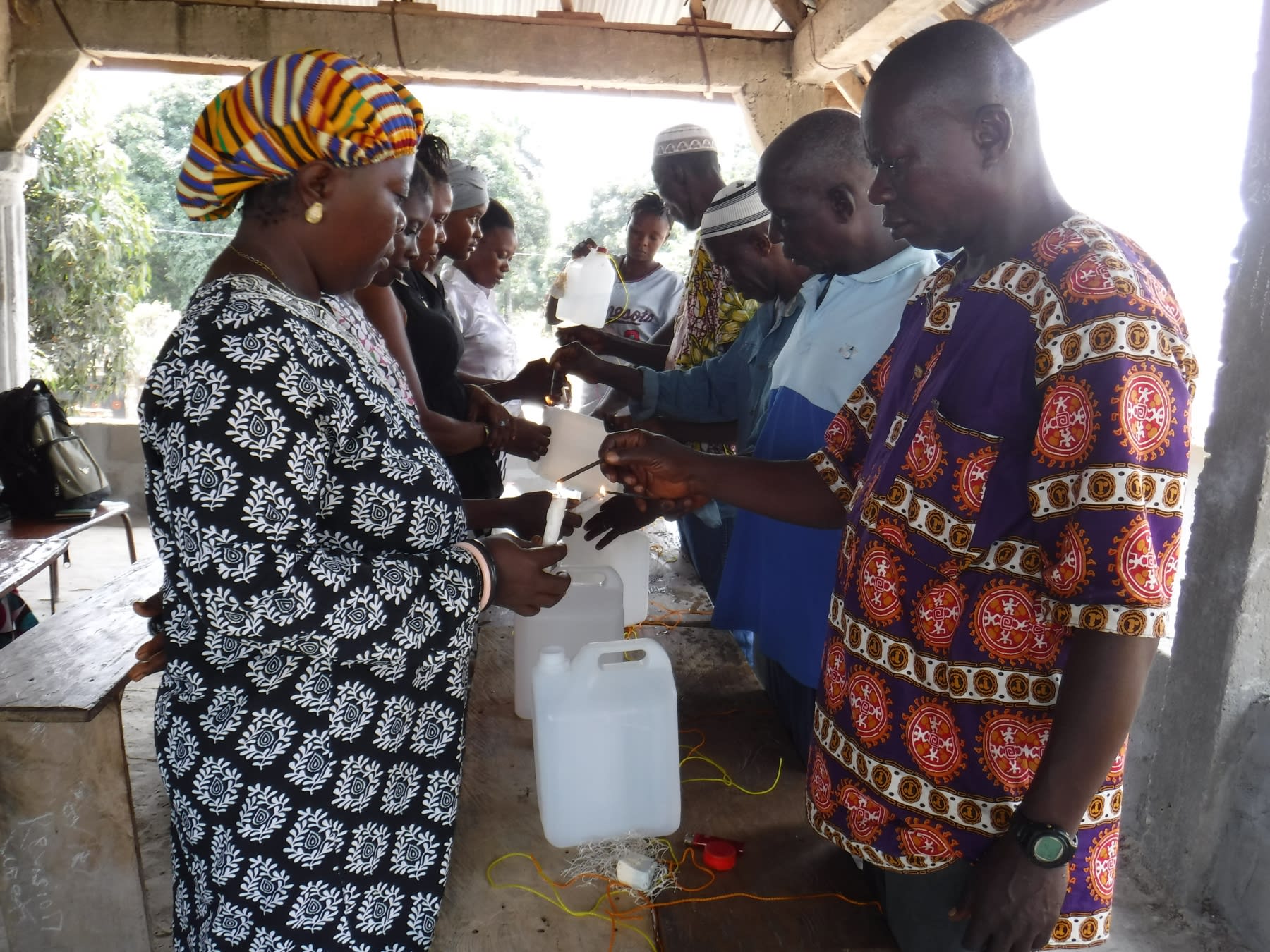"This distance to fetch water is too far. What I don't like is the hilly nature of the road to the stream," said 12-year-old Kadiatu.
To get to the stream, Kadiatu and the other students at Khodeza Community School must pass a hand-dug well located on the school grounds. The open well works some parts of the year, but it goes dry during the seasonal water table drop. To get water, people must lower a bucket down into the well and haul up the water. This introduces contaminants into the water source.
This community is noted for waterborne sicknesses like dysentery and typhoid. In fact, this was one of the communities in which cholera struck some years back. To help prevent illness and deal with water insecurity, the school will pay for weekly water deliveries. The money spent on the water could be invested in improvements for the school.
"The unavailability of water in this of our community is so alarming. To start with water is life and we are in desperate need of it," said Mohammed Kamara, a teacher at the school.
"The distance to fetch water is too far. Most of the time our kids go to school late because they have to fetch water."
The school is named after a pair of brothers, Khode and Lizza. Their parents were motivated to open the school after the untimely death of Khode. They worked to raise funds for and construct the school in 2015 in Khode's memory. The school is almost about one hundred meters from the airport ferry road. The two-story main school building has 18 classrooms and it is expanding to accommodate the growing population of students in pre-primary, primary and secondary classes that stands at 729 today.
Here’s what we’re going to do about it:
Well Rehabilitation
The well marked for this overhaul is dry for a few months every year and needs major work to supply adequate, clean water to the community year round. The pump will be removed, and a hand auger will be lowered inside and powered by a drill team. This hand auger will allow the team to drill several meters deeper to hit a sufficient water column that will ensure the well supplies water throughout all seasons.
As the team drills, casing will be installed, transforming the bottom of this hand-dug well into a borehole. PVC piping will connect this lower system directly to the pump, a construction that we know will also improve the quality of water.
Once this plan is implemented, everyone within the community will have access to safe drinking water in both quality and quantity, even through the dry months.
Hygiene and Sanitation Training
There will be hygiene and sanitation training sessions offered for three days in a row.
After our visit, the hygiene and sanitation trainer decided it would be best to teach community members how to build a tippy tap (a hand-washing station built with a jerrycan, string, and sticks). They will use these tippy taps for handwashing demonstrations, and will also teach about other tools like dish racks and the importance of properly penning in animals.
These trainings will also strengthen the water user committee that manages and maintains this well. They enforce proper behavior and report to us whenever they need our help solving a serious problem, like a pump breakdown.

 Borehole Well and Hand Pump
Borehole Well and Hand Pump































